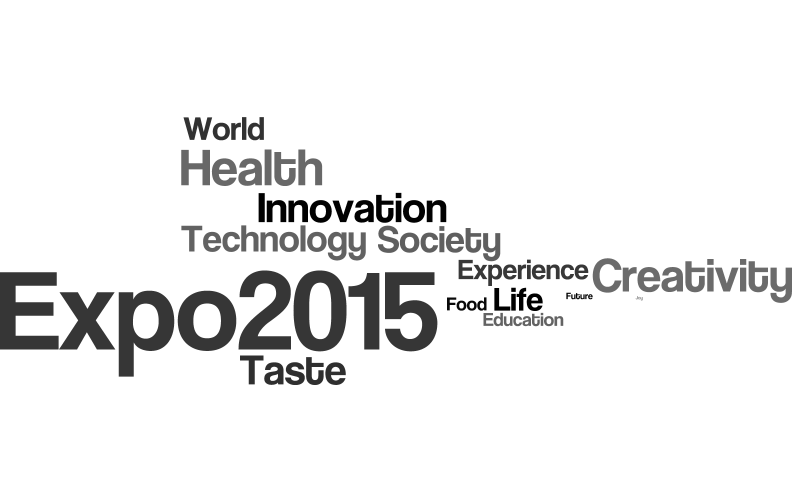Viewed 8670 times | words: 539
Published on 2016-02-14 | Updated on 2019-12-07 17:09:47 | words: 539

I will assume that you went through the short introduction - if not, it is available online.
In 1996, an American friend brought me around Continental US, from Ann Arbor in Michigan, to Phoenix in Arizona- by car.
Part of the tour included visiting some Indian Reservations, and I was offered the option to buy a "passport" where I could have a stamp for each one that I visited.
Expo2015 in Milan offered the same option- but this time I bought one, and used it intensively in my July 4th visit.
An interesting point is that it allowed to play a little experiment, as each couple of pages contained a "keyword" relevant to the theme of the Expo, which incidentally is also relevant to the theme of this book, the commons.
The small tag cloud that you see above? It is the result of my experiment, just showing how the 72 exhibitions (i.e. "countries") that I visited decided to distribute their stamps across the "themes".
The themes? Creativity, Education, Experience, Food, Future, Health, Innovation, Life, Society, Taste, Technology, World.
Some of these themes are obvious candidates, if you are looking for something whose ownership should be shared.
We still retain our XX century obsession for intellectual property right, but at last we are starting to see that it is more a give-and-take than a "first past the post and license": solutions to rich country issues increasingly involve the use of ideas developed in those that used to be called "developing countries".
Just staying within the domain of food and health: "generics" (and the reuse of expired patents to create less expensive treatments) is now common also in those that used to be called "first-world countries" (such as OECD member countries).
Call it "capitalism 2.0" or "wikinomics", but technology and cooperation between customers and suppliers have slowly altered also the dynamics of regulation-setting and lobbying.
What's the point of traditional lobbying, campaigns to register lobbyists, and regulations, when an individual customer (not a registered consumers' rights organization) might assemble a "swarm" of customers around a complaint?
Instead of a going silent for months while waiting for lawyers to mount a class action, such an individual might start having all the customers involved actively "voting with their wallets" (as discussed in the introduction), and convincing others to follow them.
Or, as an author wrote few years ago, "satisfied customers tell three friends, angry customers tell 3,000"
Anyway, this book is "inspired by" but not "about" Expo2015- and therefore each one of the 12 themes listed above is worth considering across space (countries whose stamps I collected on the two pages for that theme), and across industries (that I can associate to those countries).
It is a case of "guided serendipity"- but isn't that with any quest to inspire questions, more than answers?
 _
_